Related Research Articles
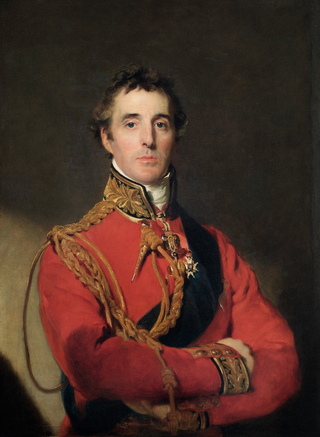
Field Marshal Arthur Wellesley, 1st Duke of Wellington, was an Anglo-Irish military officer and statesman who was one of the leading military and political figures in Britain during the late 18th and early 19th centuries, serving twice as British Prime Minister. He is among the commanders who ended the Napoleonic Wars in a victory when the Seventh Coalition defeated Napoleon at the Battle of Waterloo in 1815.

General George Ramsay, 9th Earl of Dalhousie,, styled Lord Ramsay until 1787, and Baron Dalhousie from 1815, was a Scottish soldier and colonial administrator. He was Governor of Nova Scotia from 1816 to 1820, Governor General of British North America from 1820 to 1828 and later Commander-in-Chief in India. In turn, his son, James Andrew Broun-Ramsay, 1st Marquess of Dalhousie, would later serve as Governor-General of India.

Major General Sir Edward Michael Pakenham,, was an Anglo-Irish Army officer and politician. He was the son of the Baron Longford and the brother-in-law of the Duke of Wellington, with whom he served in the Peninsular War. During the War of 1812, he was the commander of British forces attempting to take the Southern port of New Orleans (1814–15). On 8 January 1815, Pakenham was killed in action while leading his men at the Battle of New Orleans.
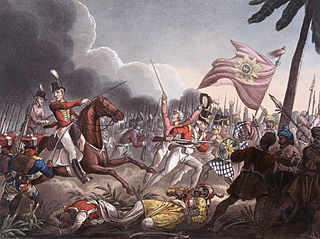
The Battle of Assaye was a major battle of the Second Anglo-Maratha War fought between the Maratha Confederacy and the British East India Company. It occurred on 23 September 1803 near Assaye in western India. An outnumbered Indian and British force, under the command of Major General Arthur Wellesley, defeated the combined Maratha army of Daulatrao Scindia and the Bhonsle Raja of Berar. The battle was Wellesley's first major victory and the one he later described as his finest accomplishment on the battlefield, even more so than his more famous victories in the Peninsular War, and his defeat of Napoleon Bonaparte at the Battle of Waterloo.

The King's German Legion was a British Army unit of mostly expatriated German personnel during the period 1803–16. The legion achieved the distinction of being the only German force to fight without interruption against the French during the Napoleonic Wars.
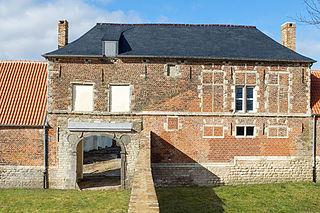
Château d'Hougoumont is a walled manorial compound, situated at the bottom of an escarpment near the Nivelles road in the Braine-l'Alleud municipality, near Waterloo, Belgium. The site served as one of the advanced defensible positions of the Anglo-allied army under the Duke of Wellington, that faced Napoleon's Army at the Battle of Waterloo on 18 June 1815.

The siege of Seringapatam was the final confrontation of the Fourth Anglo-Mysore War between the British East India Company and the Kingdom of Mysore. The British, with the allied Nizam Ali Khan, 2nd Nizam of Hyderabad and Marathas, achieved a decisive victory after breaching the walls of the fortress at Seringapatam and storming the citadel. The leader of the British troops was Major General David Baird, among the lesser known allies were the Portuguese in Goa and Damaon. Tipu Sultan, the de facto ruler after the death of his father, who had usurped the throne of Mysore, was killed in the action. The British restored the Wodeyar dynasty back to power after the victory through a treaty of subsidiary alliance and Krishnaraja Wodeyar III was crowned the King of Mysore. However, they retained indirect control of the kingdom's external affairs.
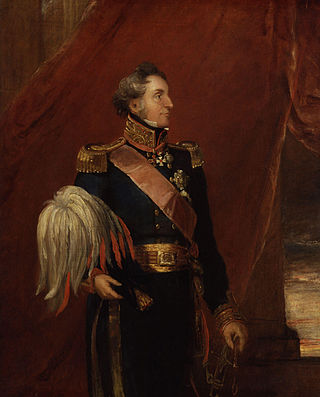
Lieutenant General Richard Hussey Vivian, 1st Baron Vivian, known as Sir Hussey Vivian from 1815 to 1828 and Sir Hussey Vivian, Bt, from 1828 to 1841, was a British cavalry leader from the Vivian family.
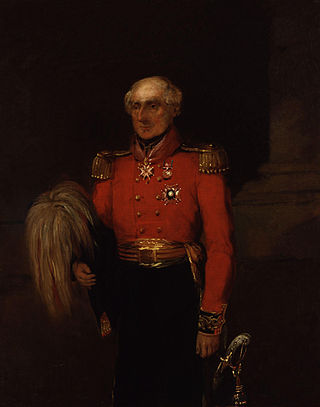
Lieutenant-General Sir Colin Campbell was a British Army officer and colonial governor.

General John Hope, 4th Earl of Hopetoun,, known as The Honourable John Hope from 1781 to 1814 and as Lord Niddry from 1814 to 1816, was a Scottish politician and British Army officer.

General Sir Henry Fane commanded brigades under Arthur Wellesley, 1st Duke of Wellington during several battles during the Peninsular War, and served both as a member of Parliament and Commander-in-Chief of India.
Nicholas Trant (1769-1839) was a British Army officer of Irish descent who led Portuguese irregular troops in several actions during the Peninsular War. His best known exploits were the recapture of Coimbra from the French in October 1810 and the successful defense of the line of the Mondego River in March 1811.
General Sir John "Black Jack" Slade, 1st Baronet, served as a general officer in the British Army during the Peninsular War. Slade was praised in official reports, including by Arthur Wellesley, 1st Duke of Wellington, who also voiced some criticisms of him privately. Slade received an Army Gold Medal, and was honoured three times with the thanks of Parliament. Slade's descendants include two admirals, namely son Sir Adolphus Slade and grandson Sir Edmond Slade. Despite achieving high rank during and after active soldiering, Slade was criticised as a general of cavalry by some contemporaries and historians.
The Capture of Gawilghur fort in western India by British East India Company forces under the command of Sir Arthur Wellesley on 15 December 1803 during the Second Anglo-Maratha War was the culminating act in the defeat of the forces of Raghoji II Bhonsle, Rajah of Berar. Gawilghur's garrison of 3000 was commanded by Beni Singh Rajput, assisted by Manoo Bapu, who was the cousin of Raje Bhosale of Nagpur and Killedar Rana Shivsingh, a Rajput Commander of Narnala and also the Governor of Gawilgad and surrounding forts. Rana Shivsingh Rajput was brother-in-law of Jamadar Beni Singh Rajput.

Arthur Wellesley, 1st Duke of Wellington,, was one of the leading British military and political figures of the 19th century. Often referred to solely as "The Duke of Wellington", he led a successful military career in the Indian subcontinent during the Fourth Anglo-Mysore War (1798–99) and the Second Anglo-Maratha War (1803–1805), and in Europe during the Napoleonic Wars (1803–1815).
Lieutenant-Colonel Edward William Pakenham was an Irish soldier and Conservative Party politician from County Antrim. He served for two years as a Member of Parliament (MP), until his death in the Crimean War.
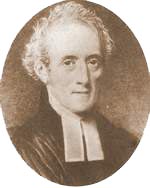
Henry Thomas Austen was a British militia officer, clergyman, banker and the brother of the novelist Jane Austen. He died in 1850 and was buried in Woodbury Park Cemetery, Tunbridge Wells.
Henry Pakenham was Dean of St Patrick's Cathedral, Dublin from 1843 until his death.
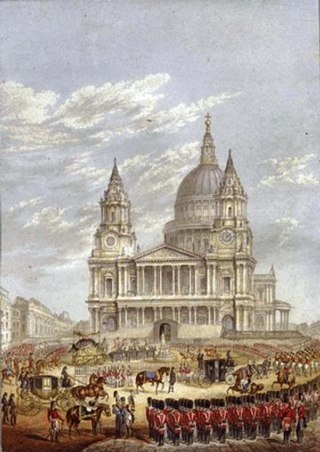
Arthur Wellesley, 1st Duke of Wellington, died on 14 September 1852, aged 83. He was the commander of British forces and their allies in the Peninsular War and at the Battle of Waterloo, which finally ended the Napoleonic Wars, and served twice as Prime Minister of the United Kingdom. Although Wellington's political career had led to his unpopularity because of his opposition to the Great Reform Act, in old age it was his military career which was remembered and he was revered as a national hero. His state funeral on 18 November at St Paul's Cathedral in London was the grandest of any in Britain during the 19th century.
References
- ↑ Holmes, Richard (2003). Wellington, the Iron Duke. HarperCollins. p. 79. ISBN 978-0-00-713748-0.
- ↑ Weller, Jac (1993). Wellington in India. Greenhill Books. p. 191.
- ↑ p118 "Wellington:the Years of the Sword" by Elizabeth Longford, World Books,1971.
- The Letters of Captain John Orrok edited by Alison McBrayne. Published by Matador, UK 2008.
- Wellington, the Iron Duke by Richard Holmes, HarperCollins, London 2003
- Wellington in India by Jac Weller, Greenhill Books, London 1993
- Wellington: the Years of the Sword by Elizabeth Longford, London, World Books,1971